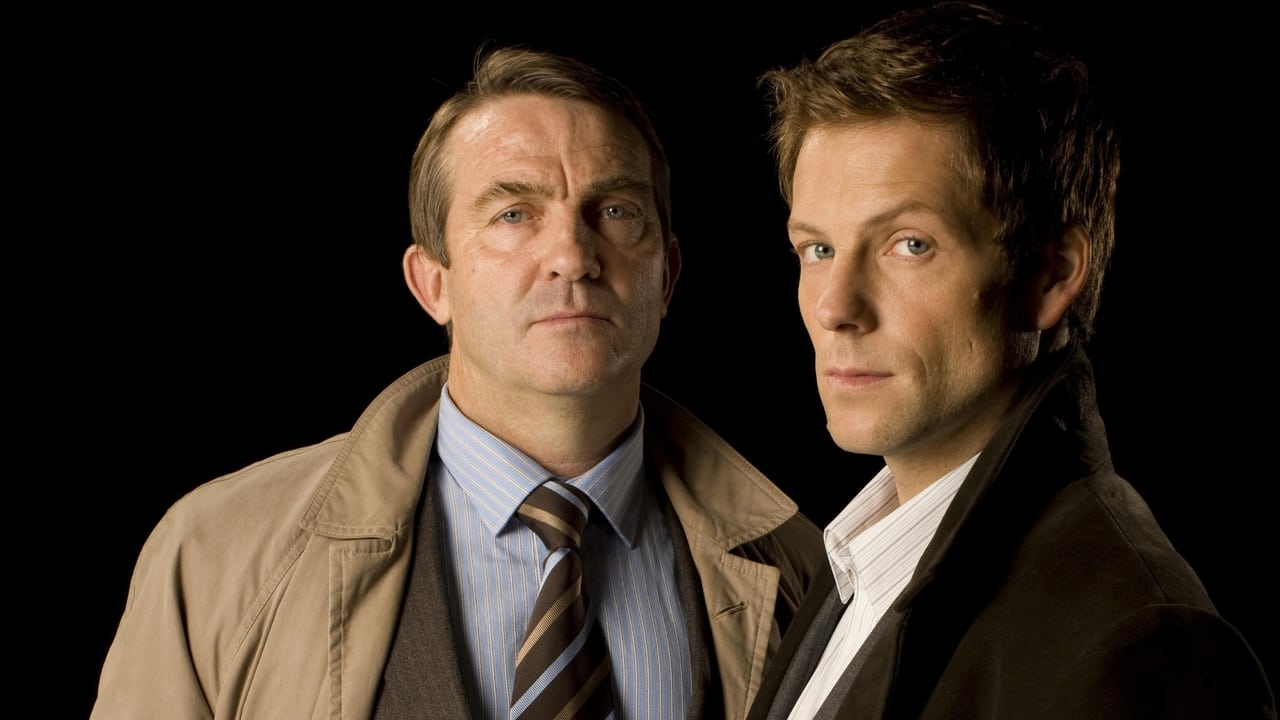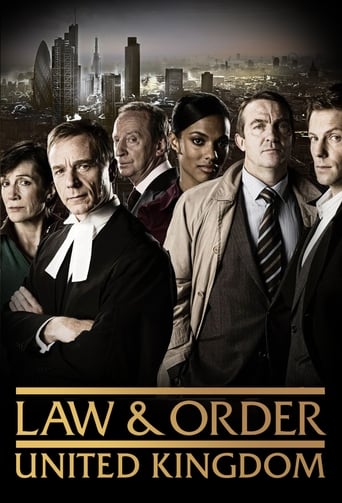

I wanted to like it more than I actually did... But much of the humor totally escaped me and I walked out only mildly impressed.
... View MoreGood films always raise compelling questions, whether the format is fiction or documentary fact.
... View MoreGo in cold, and you're likely to emerge with your blood boiling. This has to be seen to be believed.
... View MoreExcellent characters with emotional depth. My wife, daughter and granddaughter all enjoyed it...and me, too! Very good movie! You won't be disappointed.
... View MoreThe first batch of four seasons are not entirely clear on IMDb as for the release dates of them. Season 3 seems to be dangling somewhere in mid-space or should I say mid-airs. But nevertheless these four seasons are unified by the Director of Public Prosecutions and the main Crown Prosecutor concerned in the cases. These two characters leave at the end of the fourth season. Note finally that a season is ten episodes and they run one after the other not from one year to the next but just in sequential order over hardly two years of airing.It is a remake of the eponymous US series and the first episodes are the clear transfer from the US context (New York) to the UK context (London). But after a while of copycat translation the series gets on its own British feet. And it becomes interesting in itself and the covered cases. In the UK the Crown Prosecution Service has authority only in England and Wales. But the division between the police and the Crown Prosecutors is different from what its equivalent is in the US where the prosecutors are only prosecuting, hence taking into account what proves the guilt of the suspect. And that's the first difference.The Crown Prosecutors, just like the police, in Great Britain are looking for the "truth" which means the balanced approach of any eventual court procedure, both what proves the guilt and the innocence of the suspect. Several cases deal with this responsibility of crown prosecutors and one case goes as far as prosecuting the crown prosecutor because in one case one testimony proving the innocence of the accused had been sidetracked and hence kept away from the crown prosecutor who had the suspect, then accused, convicted in court by a jury and sentenced by a judge as guilty. This man, wrongly convicted and sentenced turns against the Crown Prosecution Service and the particular crown prosecutor who prosecuted his case after his release from prison.It is revealed that the piece of evidence was in fact pushed aside by an employee of the said crown prosecutor who had had an affair with her, and when he announced her he was ending the unethical relation she acted out of vengeance on her side. The crown prosecutor was acquitted by the jury of his case and the convicted innocent man had his case revised due to the new element that came out. In other words, neglecting a piece of evidence is a criminal offence in Great Britain for a crown prosecutor. Is it in the USA? It sounds more there as being the responsibility of the Defense to bring the evidence that proves the innocence of the suspect and accused forward in court. And in the USA there is a strong principle that someone cannot be tried twice for the same offence: look at Mumia Abu Jamal. The second great difference is the ethnic mix in the police (though not in the investigating team), in the Crown Prosecution Service, even in justice with quite a few black or ethnic judges, and in society with a great ethnic mix in London. Same thing with women who are integrated at all levels. The US series is far from this obvious and visible ethnic integration. And that is not a frivolous issue because on the US side the ethnic loss in public image is in no way frivolous but unluckily quite conscious and eventually, for some people at least, justified for any reason from bigotry to prudence.The final remark is that the cases are dealt with in a more humane way on the UK side. The social and even tritely social elements are brought up, analyzed and empathized by the various teams and court personnel. The few times when the jury is shown as a whole are clear about the great social, ethnic and gender mix in the twelve men and women there. And the main difference is the fact that a jury is not obliged to take decisions unanimously. A majority vote is possible. In other words, and as a conclusion this first batch of this series is moving slowly towards a real British approach of justice and social situations that produce the crimes, hence the criminals, and that implies the great caution at using psychiatric elements that could bring up the irresponsibility of the accused in their criminal acts. The common case between this series and the one in New York about a twelve-year-old that pleads guilty because the defense that tries to prove he is a killer because of a "killing" gene demonstrates to the child he is a "monster" that has to be eliminated. The British version definitely leaves the door open to some possible treatment, even in prison or a detention institution. That kind of hope is the main tone of the series and is definitely not dominant on the New York side. The British seem to consider crime as social dysfunction, at least in some meaningful proportion, whereas the US justice system insists a lot more on the individual and personal responsibility of the criminal, hence on the psychiatric or psychological responsibility which is a way to avoid asking the sorry question of the responsibility of society in crime. Dr. Jacques COULARDEAU
... View MoreI watched an episode of this, before realizing that it was just a rehash of a Chris Noth/George Dzunda episode from Season 1. (I think. My memory doesn't go back that far.) Anyway, plot was familiar. Greedy developer tries to drive tenants out of rent controlled complex, baby dies... wash, rinse, repeat.So take the same scripts, put a little local color English dialog in there, and hope no one notices you've just repackaged something? Really? Really? Oh, the series has the hot black girl from Doctor Who, hoping to become a serious actress, I guess.I guess rewriting it from American to British English is a challenge. "Okay, it's not an 'elevator' it's a 'lift'!" But there's nothing new here, and these British actors don't have the charm L&O classic had.
... View MoreMixed feelings about this. Good to great actors and the stories aren't better or worse than they were in the American original. But the regurgitation of old episodes is a worse crime than the repetition of old themes in the other L&O franchises. When did writing (more or less) original stories become a thing of the past? At least they could do as the CSI people and pretend. To be honest i'm only half way through the first season and in the second there's apparently some original material. But my biggest concern is the "'ow's it going' guv" English, clearly aimed at the American audience and their perception of British coppers.
... View MoreI am a big fan of L/O, particularly L/O and L/O CI. I find the UK version extremely interesting and exciting. The nuances between the US and UK criminal systems are fascinating as are the similarities. The differences in the Miranda warnings, the demeanor of the attorneys (barristers) in court, the defendant in the docks all make for a great education on the legal systems. It is great to have a Lennie Briscoe type character in Bradley Walsh. The understated humor is terrific. The rest of the cast is first rate also. Really getting attached to them. When is the second season coming out on DVD? We are planning a trip to London in October and can't wait to visit the Old Bailey.Also looking forward to L/O LA. Dick Wolf is amazing.
... View More